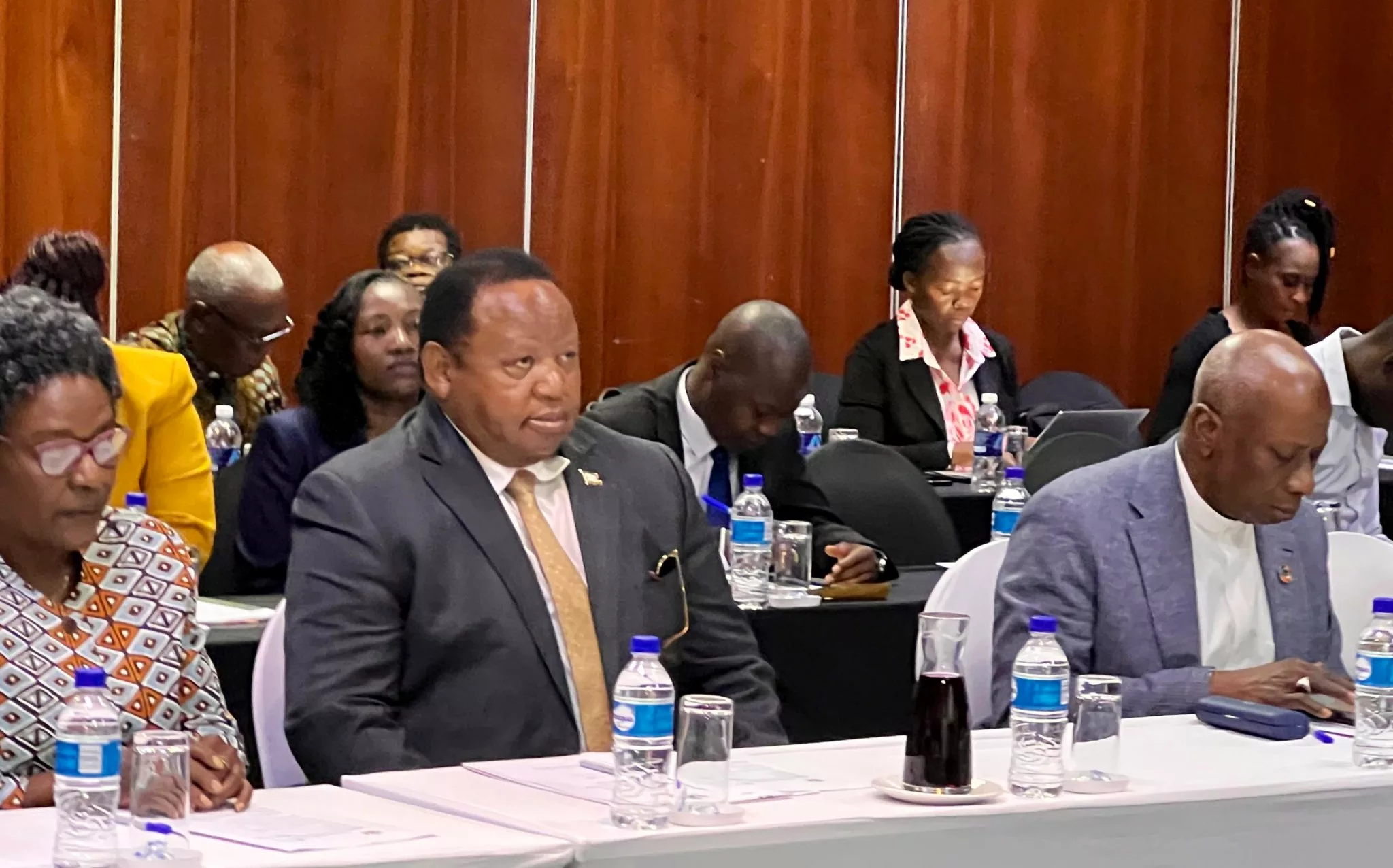|
Getting your Trinity Audio player ready...
|
The Summit of the Future will enhance cooperation on critical challenges build peaceful, just, and inclusive societies, and ensure the lasting protection of the planet and its natural resources.
These were sentiments captured in the keynote address by the Minister of Foreign Affairs and International Trade, Honourable Dr. Frederick M. Shava, at the stakeholder engagement organized by the United Nations Resident and Humanitarian Coordinator in preparation for the Summit of the Future in Harare on 12 September 2024.
“I take this opportunity to reaffirm Zimbabwe’s commitment to the full and effective implementation of the objectives of the Summit of the Future which inter alia, seek ways of enhancing cooperation on critical challenges and building peaceful, just, and inclusive societies, and to ensure the lasting protection of the planet and its natural resources and move towards a reinvigorated multilateral system that can effectively tackle the challenges of today and tomorrow for the sake of humanity,” Minister Shava said.
He said Zimbabwe is of the view that the Pact for the Future captures the collective dedication to restoring trust and reaffirms the principles of the United Nations Charter to promote peace, security, and sustainable development across the world. These aspirations align with the priorities of the African Union Peace and Security Council and SADC peace-building initiatives.
He called for the reformation of the multilateral system, particularly, the United Nations Security Council, whose mandate is to ensure the maintenance of global peace and security.
“A reformed, democratic, and representative Security Council is our only chance to address the multifaceted security challenges we currently face, whose causes and drivers have grown to include climate change, poverty, economic crises, and natural disasters,” Minister Shava added.
On its part, Zimbabwe hopes for the opportunity to meaningfully contribute to matters of global peace and security, as a Non-Permanent Member of the Council for the period 2027 to 2028.
Addressing the same gathering, His Excellency Mr. Edward Kallon, UN Resident and Humanitarian Coordinator for Zimbabwe, highlighted the importance of revising existing multilateral agreements, boosting international cooperation, and fortifying diplomacy.
“Such efforts are pivotal for sustainable development, inclusive financial systems, and shared and inclusive economic prosperity. In our intricately connected world, addressing global challenges demands a united front, embedded through robust partnerships across the board, and in all sectors,” HE Kallon said.
The Summit of the Future, an initiative by the United Nations that will take place from 22-23 September 2024 in New York, serves as a vital platform for nations worldwide to engage in multilateral dialogue, confronting global challenges. For Zimbabwe, this summit is pivotal in supporting its national objectives, propelling economic, social, and democratic transformations towards sustainable development and climate-smart, green industrialization.
He said at the core of the Summit of the Future is a steadfast commitment to multilateralism and international cooperation, a cornerstone principle of the United Nations Charter.
“For Zimbabwe, aspiring to achieve an upper-middle-income status by 2030, these multilateral frameworks present avenues to unlock significant economic and social transformations. Active participation enables Zimbabwe to harness international partnerships, address developmental hurdles, access new markets, and form beneficial trade agreements. Multilateral cooperation also affords Zimbabwe platforms to articulate its concerns and priorities, aligning its development agenda with global objectives.
“For example, the UN with generous financial and technical support from development partners mainly the OECD-DAC has been able to deliver on average annually US$ 500 million in various development programmes under the 2022-2026 Zimbabwe UN Sustainable Development Cooperation Framework,” he added.
He said dialogue plays a pivotal role in unlocking Zimbabwe’s potential for economic and social transformation. The Summit of the Future fosters open discussions prioritizing inclusive growth and people-centered development. Through participation, Zimbabwe can attract foreign direct investment (FDI) and overseas development assistance (ODA), showcasing its commitment to reform, promoting peace and security. Additionally, domestic investments, including those from the Zimbabwean diaspora, can be mobilized to drive economic growth and job creation. Public-private partnerships can stimulate economic activities through infrastructure projects, enhancing social services.
The UN Resident Coordinator said Zimbabwe’s economic transformation must align with climate-smart and green industrialization. The Summit emphasizes responding to climate emergencies, addressing global warming and environmental deterioration. Adopting green industrialization entails reducing reliance on fossil fuels, investing in renewable energy, and promoting sustainable agriculture. International cooperation can provide Zimbabwe with climate finance, technology, and expertise needed for transitioning to a low-carbon economy. Sustainable natural resource management is vital for biodiversity preservation and pollution reduction, benefiting both the environment and the economy.
On the other hand, obtaining development finance is crucial for Zimbabwe’s ambitious transformation agenda. The Summit offers a platform to advocate for and take the ongoing structured dialogue on debt resolution mechanisms a notch up, addressing Zimbabwe’s financial limitations. Resolving debt and arrears can free resources constrained by debt servicing and redirect them towards development projects.
Central to Zimbabwe’s transformation is the advancement of gender equality and reduction of inequality, a critical component of the 2030 Agenda for Sustainable Development. The Summit underscores addressing inequality as a driver of polarization. For Zimbabwe, this means implementing policies ensuring equal opportunities regardless of gender or socioeconomic status, empowering women, youth, and other groups such as indigenous people and persons with disability, fostering equitable societies contributing to economic growth and social cohesion.
The global compact envisaged by the Summit aligns with the 2030 Agenda for Sustainable Development and its 17 Goals, offering Zimbabwe a comprehensive framework for guiding development efforts. Integrating these Sustainable Development Goals into national planning ensures holistic and inclusive development initiatives. Pursuing goals such as clean energy, quality education, and decent work and social protection, food systems and digital connectivity aligns with Zimbabwe’s National Development Strategy and its Vision 2030 to become an upper middle-income society.






